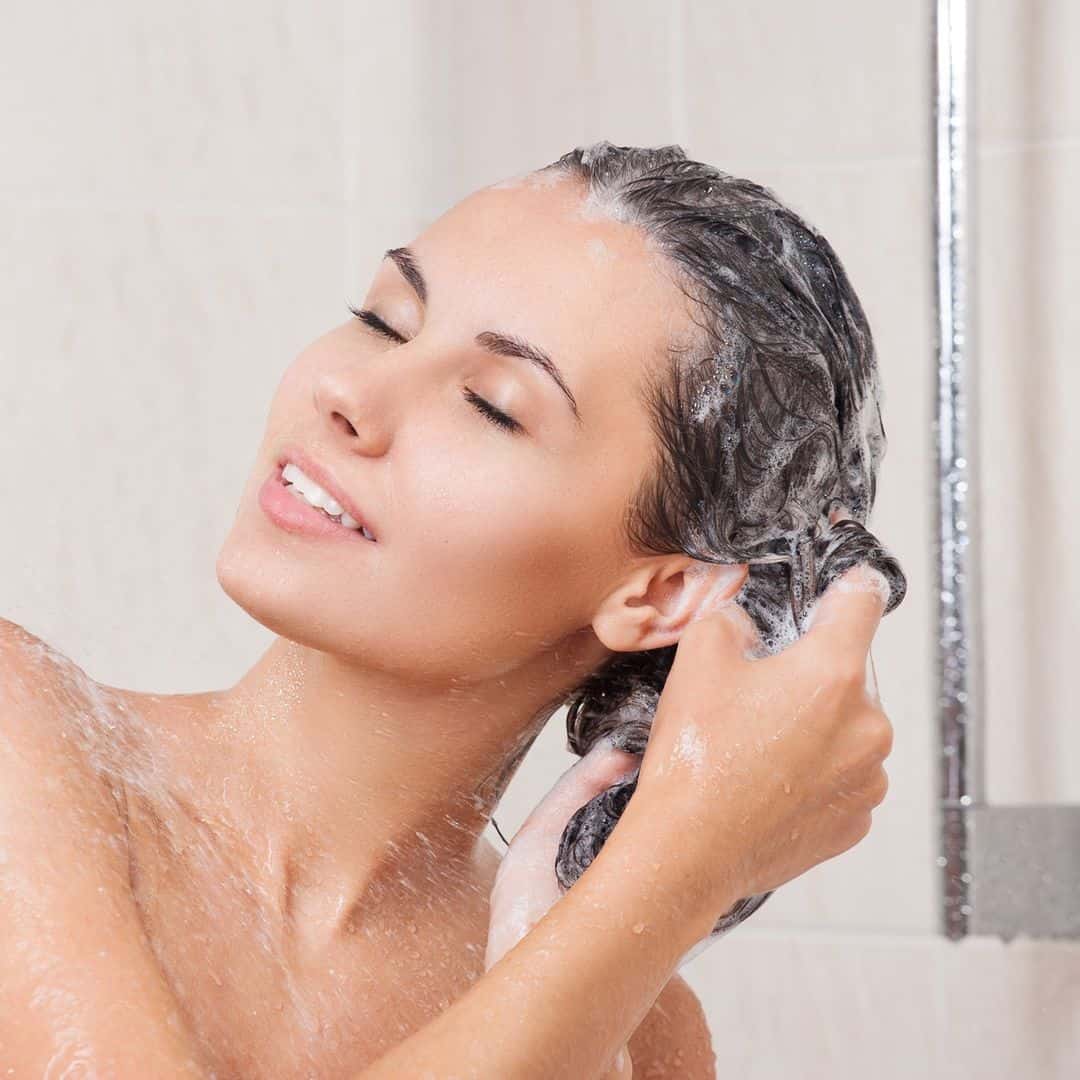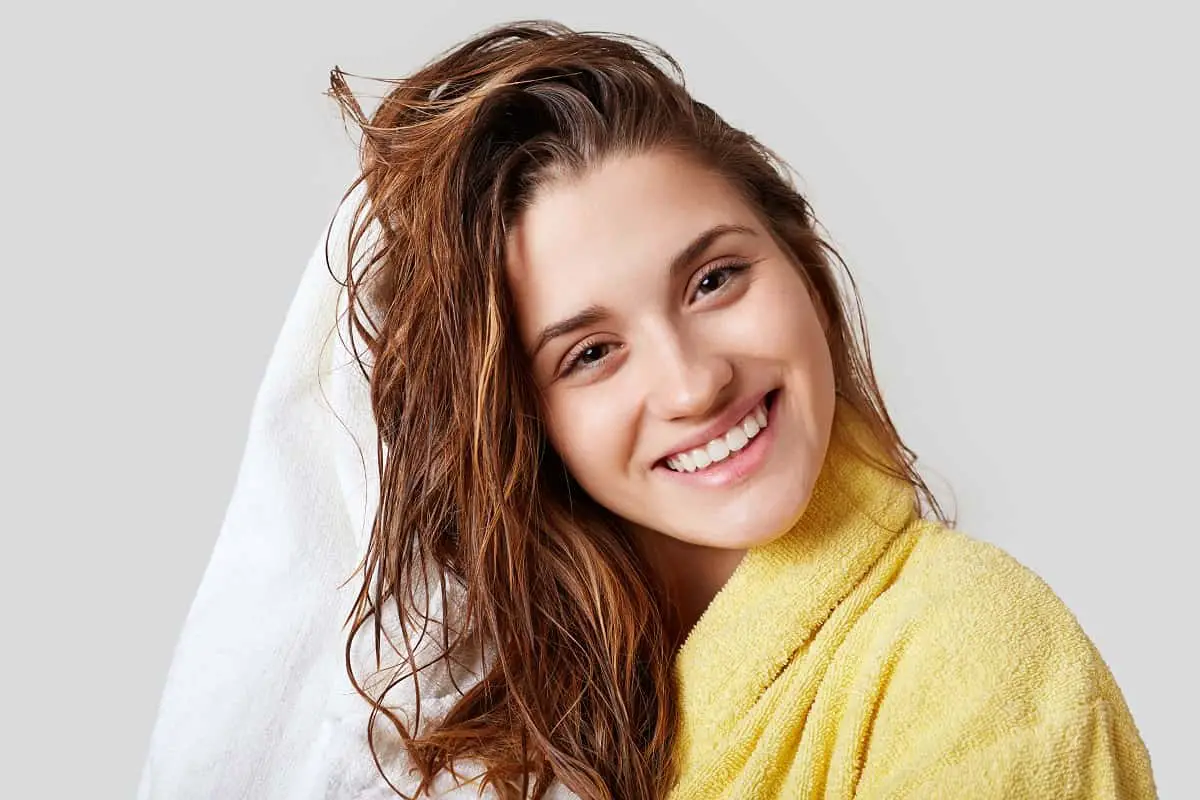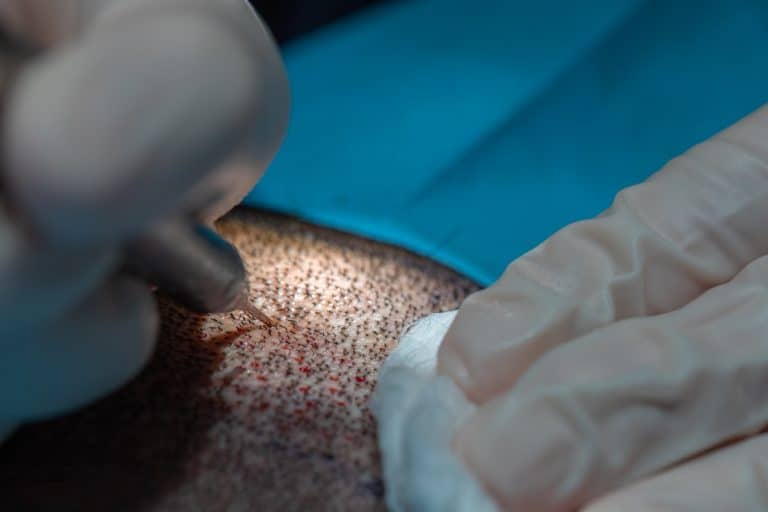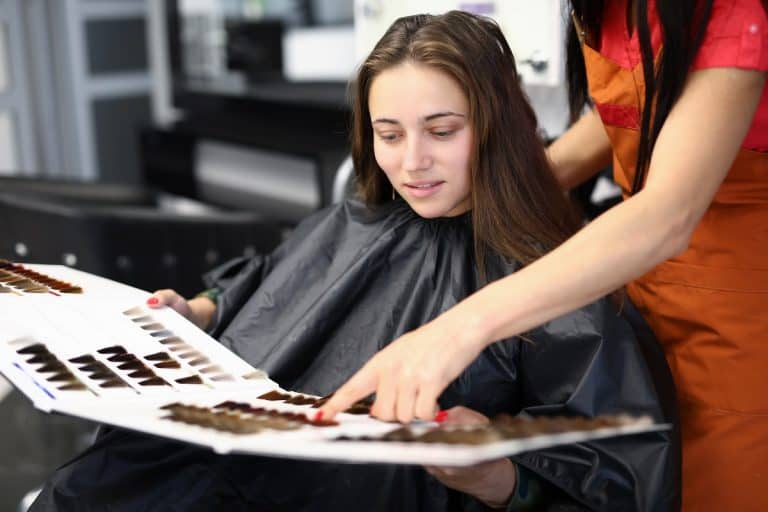Should You Wet Your Hair Everyday? Tips Not To Ruin Your Hair
People who have a passion for swimming, or they simply love to have their hair impeccable and always fresh and clean, might have been wondering about the fairness of their habit.
Even when wearing the wet look every day, this implies exposing the hair to permanent humidity. Does this routine contribute to possible damage? Can people protect their hair even if they keep it all wet during the day?
This wonder is the base for today’s research. I have gathered today some professional advice today so people can better understand their hair condition.
More About Hair
Hair is a protein filament that grows from follicles found in the dermis. And since each person is different, so is our hair. No wonder there are four types of hair, while each class is then classified in some other subgroups. Now, the pattern of the hair can vary due to the root and the tip of it.
Getting the hair all wet every day, using fresh water might not be such an issue. However, when the process repeats daily due to the following reasons, things are getting serious:
- Swimming in the sea or ocean daily
- Swimming in a chlorinated pool
- Washing the hair daily using harsh shampoos
Baby steps are the key, so this article will take each of these daily baths and analyze their weak points. Take a look at this information and find everything about the disadvantages of wetting the hair daily. Learn more about repairing the split ends and some natural products for washing the hair daily.
Getting the Hair Wet Vs. Washing The Hair
Getting the hair wet has little to do with actually washing it. These are two different things.
- Wetting the hair can be the intention of standing right underneath the shower and letting the water run all through the hair. Another method to moisturize the hair is spraying some water or simply using those special hair moisturizers.
- Washing the hair, on the other hand, is a different thing entirely. Although some people still consider this process just as wetting, washing the hair implies using shampoo, water, and other products meant to degrease and clean the dirt.
Whether people are wetting or washing their hair, this factor has a crucial role in the two processes. How warm or cold the water is will influence the possible damages of wetting the hair and the scalp. Hot water is going to clean the hair entirely.
However, the high temperature is going to weaken the hair a lot. The result will be vulnerable hair with open pores to dirt and excess oils.
On the other hand, cold water is like a shine effect on the air. Low temperature will help the blood circulate into the scalp, while the skin will remain cleaner once the pores are closing.
An open-pore scalp will be more likely to accumulate dirt, foster bacteria growth, and lead to hair loss (1).
Now, since hot water can immediately damage the hair and mainly the scalp, experts recommend that people use warm water during the shampooing process so that the pores will open and the dirt will go out. While during the rinse-out stage, cold water is the right one to use and seal the pores.
Understanding the type of hair a person has is essential to know how to care for it properly.
The Importance of Washing Frequency
The frequency of washing the hair or simply wetting it will determine how much the nutrients will stay on the hair and the possible fiber breakthroughs.
Considering what desires people want for their hair, whether rapid growth or other changes, they should consider how often they wet and wash it.
However, people should not wash their hair too frequently, only if needed. Keeping the natural oil on the scalp is essential; however, there might be some exceptions. Down below, the readers will find everything about optional methods to wash their hair once or twice a week, without eliminating the oils but keeping their hair healthy.
Top Situations When It’s Bad To Wet Your Hair Daily

Let’s be clear. Getting the hair wet on a daily basis, using only some freshwater, is perfectly ok for the scalp and hair.
So, if there are people among the readers that enjoy salty styling sprays and are used to waking up and wetting their hair for the proper shape, this habit is lovely. However, real problems appear when there are other ways of moisturizing the hair daily.
Here are some of the harmful actions people do when wetting their hair daily:
Swimming In The Ocean
Ocean water, just like any other type of brackish water, contains incredible amounts of salt—no wonder the hair is likely to dry and get much more sensitive. Furthermore, hair can become dull in time, and the ends will start splitting one by one.
Nevertheless, some people enjoy and love doing this. Plus, let’s face it, swimming is a sort of therapy. In this case, people swimming daily in the open, salty waters, should not stop doing it (2), as long as they have a backup plan and know how to protect their scalp.
- The first thing people can do to protect their hair during swimming time is pre-treatment, making the hair water-resistant. Many brands are selling these types of treatments to keep out the harmful effects of UV, chlorine, salt, and last but not least, sun.
- A swimming cap can be the second solution to protect the hair from salty hair. When using a swimming cap, the process is simple: tie the hair up in a top knot, then use a stroke to keep most of the hair out of the water. As soon as getting out of the water, it is essential to rinse the hair with fresh water, so the salt will no longer stay on the hair. Removing the salt is a crucial step so that it won’t affect the texture and health of the hair. Washing the hair should be a daily habit; otherwise, the hair will be dry and unhealthy.
Daily Pool Swimming – A Wrong Habit?
There is no secret that most swimming pools have a lot of chlorine in the water. This is used to protect the environment and keep it free of any kind of no bacteria. The intention is all good; however, chlorine can be truly damaging for the hair.
Worry no more, as there are so many solutions to keep the hair all healthy while also swimming in the pool daily:
- Wetting the hair before entering the pool is an inspiring step. While the hair is all wet, it will not absorb additional water, either chlorine;
- Secondly, a swimming cap is an extraordinary trick. Moreover, if the hair will be wet before putting the swimming cap, the sealing effect is accentuated;
- A leave-in conditioner can be the best friend; Right before entering the pool, use a leave-in conditioner so that this solution will create a sealing layer between the hair and water;
- A natural oil will work as well as the conditioner. Oils are waterproof allies and a barrier to chlorinated water.
Daily Hair Care – A Harmful Routine?

After highlighting the harmful actions of getting the hair in contact with water everyday, it is essential to talk about daily hair care. This routine is always a personal choice. Rarely will doctors recommend people to wash their hair daily, and only when there are medical reasons behind it (3).
So, the decision of washing the hair daily will be up to some physical factors: hair type, scalp texture, sebum excess, personal preferences. Other elements will contribute to the washing frequency, but bear with us as we analyze each of them.
The Shampooing Process
How often people shampoo their hair sometimes has nothing to do with good health. According to their ingredients, shampoos are liquids that are mainly used for cleaning the scalp of dirt, sebum, pollutants, scales, and many other greasy residues.
No study or doctor will tell you shampooing the hair is what you need. This will always be a personal decision, based on the following factors:
Hair Texture
The texture of the hair is more likely to be dryer when it is:
- Curly
- Thick
- Gray or aging
- Painted or treated with chemicals, such as bleached hair or dyes
If people have one of these dry hair types, they should not wash their hair daily, not even every other day. Instead of this habit, they should pass their hairless, so the natural hair and scalp oils will stay there and offer moisture.
As such, washing the hair weekly is a better decision for those with dehydrated hair.
On the other hand, oily hair will look so greasy if you leave it like that for the day. Especially when summer comes or after an intense workout, an oily scalp will ruin the hairstyle. During puberty (4), hormonal changes may also have a huge influence on hair and scalp.
Scalp Condition
The scalp condition has a real influence on a person’s hair condition. As such, people that have a dehydrated scalp will tend to produce a lot more sebum.
Consequently, those with very oily scalps might develop some skin issues in time, just like acne, dermatitis along the hairline. With these medical conditions, people might need to wash their hair more often for a clean look.
Sweat
No one will be surprised that while having a sweaty workout, their scalp will get oily. As a result, they will wash their hair daily to eliminate the sweat for good and avoid sweaty hairstyles.
In this case, specialists recommend shampooing right after the workout sessions and after wearing hats or helmets for long periods.
Styling Products
Styling products can have a genuine impact on the health and type of scalp. If using lots of products, the scalp can get harmful irritations (5). When someone uses frequent and heavy products, they will need to wash their hair daily to remove those sprays and styling creams.
Does Medical Shampooing Even Exist?
It is essential to understand how shampoo works, so let’s discover the basics: shampoos are cleaning products with ingredients meant to eliminate oils and dirt. As such, shampoos are intended to trap oils, and as long as people do it too often, their hair will dry out.
Natural dirt and natural oils are something genuine that sometimes should remain in the hair. Medicine and studies have analyzed how hair produces sebum. These oils are meant to offer protection and moisture and protect the skin (6) and hair.
For most people, medical shampooing does not exist, and it is not necessary at all. As a consequence, a harsh shampoo will only remove the good oils. On the other hand, wetting the hair and washing it daily will remove the dirt and dandruff.
These are some of the health conditions that will require regular shampooing:
- Parasitic Infections: lice is one of the parasitic infections that require daily washing. Special shampoos are essential to cure this skin illness and get rid of the bugs.
- Scalp psoriasis (7) is a condition that needs special shampoos, particularly some medicated shampoos.
So, people that have specific skin and different scalp conditions should discuss with a dermatologist and find the ideal treatment.
By contrast, some other medical conditions might get even worse if people are practicing daily washing. For instance, dandruff, dehydrated skin, even eczema can get uglier once people wet their hair daily.
Best Alternatives to Shampooing

Considering that regular shampoos can harm the scalp and the natural hair moisture, here are some of the top alternatives to consider:
Dry Shampoo
Dry shampoo is one of the easiest yet convenient methods to consider when cleaning the hair daily. Dry shampoo comes in spray containers, and it is a fine, aromatic spray that absorbs the natural oils and sebum in seconds.
Dry shampoo is ideal to use between regular shampooing to extend the time between the cleaning sessions. However, it is essential to know that dry shampoos will not remove the dirt, and they are not a permanent solution. A large quantity of dry shampoo can irritate the skin.
Detergent-free shampoos
Also popular as “no-poos,” the detergent-free shampoos do not contain harsh detergents or harmful sulfates. In contrast, these cleaners will gently wash the hair without removing the good, natural oils.
People who have curly, or dry hair should consider this alternative as a no-damage solution.
Co-Washing
What does this even mean? Experts are also calling this alternative s conditioner-washing. This describes the action of washing the hair using a special cleansing conditioner instead of regular shampoo.
People with dehydrated hair and scalp have permanently replaced the regular shampoos and used special conditioners. This trend is on the rise; no wonder huge companies have unique products that do not contain the traditional detergents but still can clean the hair evenly.
Washing the hair using only conditioner uses the same traditional technique. You simply massage the scalp exactly how you would do with shampoo.
After you are done with the scrubbing part, you can let the conditioner moisture the hair for a couple of minutes, then rinse everything using a large quantity of warm water.
If this method sounds great, try to avoid using any other hair care products, such as silicone-based conditions. While silicone is a beautiful ingredient that leaves the hair all soft, it can also lead to greasy-looking.
If you skip the traditional shampooing method, natural oils and dirt won’t come out so quickly. As such, avoid these ingredients in conditioners: Amodimethicone, Dimethicone, Cyclomethicone, and any other substance that ends in “-cone.”
Water-Only Method
Yes, some people prefer to use only water in the process of washing their hair. However, there is no detailed research regarding the advantages of using only water.
We don’t think it is necessarily bad or something wrong; however, it is kind of impossible for simple water to remove all the grease, dirt, sweat, or pollen from the scalp.
Moreover, the water-only method will remove any moisture you would typically get from hydrating shampoos and conditioners.
I recommend simple water for quick washing cases, such as rinsing the salt from the hair or a short shower after pool swimming.
The Takeaway Information
It is pretty challenging to plead for a certain amount of time that someone should wash their hair during a week. People are different, so are the expectations regarding how hair should always look if there is anything wrong in wetting it daily or not.
As a recap, we surely know that wetting and washing and separate actions have different meanings. Secondly, wetting and washing the hair daily depend on other factors, such as hair type, daily activities, type of scalp, or styling products. Moreover, how often someone should wash their hair is also a matter of culture and age.
It is only up to a personal decision, and as long as someone is not affecting their overall health, they can wet and wash their hair as much as they like.
Also Read:





